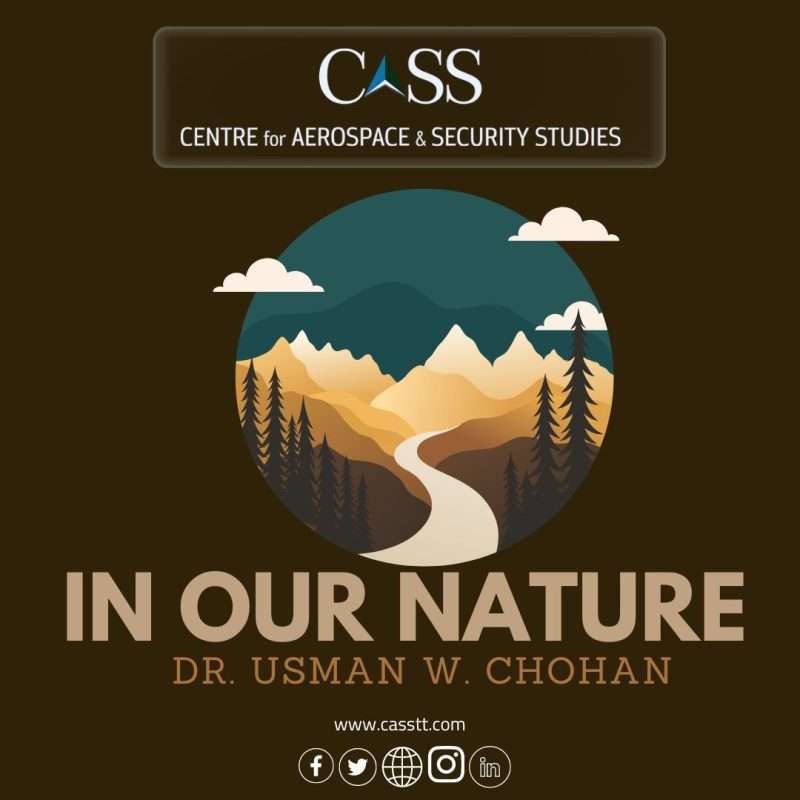Of the many shortcomings in economic pedagogy, one that is particularly worrisome is the omission of natural capital. Economists excessively discount (or simply ignore) the value of nature in production, taking nature’s bounty as an entirely boundless sum. In 1723, when notions of Western economics were being idealistically (and naively) formulated, the world really did feel like a bounty without measure, and there was ever so much remaining to be plundered. But in 2023, we know better than to think that nature is inexhaustible. The issues that now plague the world, including extreme climatic events, are the product of an excessive extraction of natural resources, leading to their depletion in many places. Yet, insofar as natural capital’s economic measurement goes, it is still broadly left out of the equation.
This is cause for considerable concern, because natural capital is the very basis of economic life in the same inextricable way that nature is the basis of life itself. Yet a study by the environmental think tank Trucost [pdf], on behalf of the UN-supported Natural Capital Coalition (NCC), sheds light on the true magnitude of what natural capital means for the modern economy. Trucost has found that the annual unpriced natural capital for more than 1,000 “global primary production and primary processing region-sectors,” which denotes the usage of natural resources unaccounted for in traditional economic metrics, is colossal $7.3 trillion dollars per year. This is a mind-boggling number by any measure, equivalent to 10% of global GDP, but it gives an indication of just what unpriced portion of nature is used to run the world economy on an annual basis.
Furthermore, and of striking importance, is the study’s recognition of the contribution of natural capital to profit. Out of the top 20 region-sectors ranked by environmental impacts, none would be profitable if environmental costs were properly incorporated into the calculations. This is where the concept of profits and markets comes into sharp relief in the economics syllabi. It is typically assumed that a profit-seeking motive pushes us to deploy capital investment and earn higher returns. But what if we were to incorporate the natural capital extracted to run the economy? The realization that is required, according to the NCC, is that the industries of today are not flawed in the degree to which they extract, but the very design by which they are driven to extract. A fundamental rethinking of how they work is required, not just the reduction or streamlining of what they do.
The region-sectors that are most extractive is also worth considering, because it is not simply large Western economies desecrating the planet, upon which the prevalent discourse insists. Instead, the largest cost of natural capital is in the coal industries of East Asia, which have an immense environmental impact. In second place, it is cattle ranching in South America, a breadbasket of the world, where the natural capital cost is most extractive. In third place is coal again in North America. But after that, in fourth and fifth place, are subjects of our immediate national interest. These are the wheat and rice farming sectors of South Asia, in which we participate feverishly, and must participate even more fervently as our populations rise and we are compelled to assure their food security. The natural capital cost of wheat farming is $266 billion dollars, compared to revenue of the sector at just $31 billion, leading to a terrible impact ratio of 8.4. Similarly, rice farming’s natural capital cost is $235 billion, against revenue of $65 billion, leading to an impact ratio of 3.6.
These are two major sectors of South Asia, in the developing world, and not the developed one. They are critical from a food security perspective and thus from a human security perspective, in addition to being economic resources in terms of employment, investment, and export. But the natural capital involved is out of proportion with the value ascribed to these industries, and the environmental usage of these sectors is not part of the mindset with which we are compelled to run these sectors. This gives us something to think about in terms of how these commodities are priced, and what it means to run these sectors, particularly in the developing-world context.
As we enter a climate-adaptation phase, following the missed climate-mitigation phase, thinking about natural capital becomes ever more important. It was not on the minds of the initial Western economists, and it was systematically ignored by economists during the 20th century. But it does not make sense to exclude concepts of natural capital from the economics of the 21st century. The burden does not just fall on the major economic powers, it also falls on us. It has been in our modern nature to ignore nature, but it would be very unnatural to think of economics in the future while ignoring nature.
Dr. Usman W. Chohan is Advisor (Economic Affairs and National Development) at the Centre for Aerospace & Security Studies, Islamabad, Pakistan. He can be reached at cass.thinkers@casstt.com.





